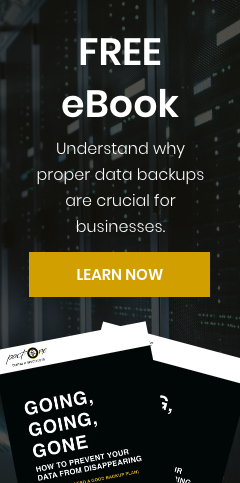Data breaches have become an unfortunate reality. And, the healthcare industry has been a prime target for cybercriminals due to the sensitive nature of patient data. In June 2023, Delta Dental of California discovered a data breach that affected approximately 7 million patients.
Protecting Your Digital Fortress with 7 Layers of Cybersecurity for Your Business

Welcome to the maze of network security, where the threats are as shifty as a chameleon in a bag of Skittles! In the constantly evolving world of technology, one can never be too careful or prepared.
With rising cybersecurity threats, protecting your business network is similar to dressing it up in a suit of armor; only this armor has seven layers.
Essential Topics to Include in Your Employee Cybersecurity Training
How Social Media Can Be a Potential Danger to Your Dental Practice

*Updated, June 30, 2025: This article, originally published in June 2023, has been updated to include breaking news of an advanced cyber threat where 16 billion passwords where exposed for various platforms. Additionally, we've provided details on how to switch from passwords to a secure passkey technology if you are an Apple, Facebook, or Google user.
Aspen Dental Cyber Attack: 1,000 Dental Practices Affected Nationwide
10 Cybersecurity Stats Your Dental Practice Should Know

The digital age has made it easier than ever to keep track of patient records, manage appointments, and communicate with clients. However, this increased reliance on technology also means that the threat of a cyber-attack is more real than ever before.
From ransomware attacks to data breaches, dental practices need to be aware of the potential dangers lurking in cyberspace so they can take steps to protect their sensitive information and stay compliant with HIPAA regulations.
Deceptive Search Results: Cybersecurity Risk for Dental Practices

In recent years, ransomware attacks have become one of the most significant cybersecurity threats targeting organizations of all sizes, including dental practices. Hackers have developed new and sophisticated methods to exploit vulnerabilities in company networks, leaving dental practices exposed to significant financial losses.
Defending Your Dental Practice Against Phishing Scams

With the growth of emerging technologies, such as AI, cybercrime is becoming increasingly sophisticated. These tools are helping hackers become even more undetectable when conducting malicious phishing scams - like email spoofing. As a dental professional, it is of utmost importance for you to understand the basics of recognizing and avoiding these pitfalls - the last thing you would want is for today's patients to be affected by yesterday's mistakes.
Creating Masterful Passwords to Protect Your Data

*Updated, June 30, 2025: This article, originally published in January 2023, has been updated to include breaking news of an advanced cyber threat where 16 billion passwords where exposed for various platforms. Additionally, we've provided details on how to switch from passwords to a secure passkey technology if you are an Apple, Facebook, or Google user.
Staying Cyber-Safe During the Holiday Season

The holiday and official shopping seasons are in full swing, and if there is a sale, there might be a scam close by. As the prices go down, so does our guard. We fear losing out on a deal and can act without thinking. In this blog we are sharing a few quick reminders to stay cyber-safe this holiday season.




